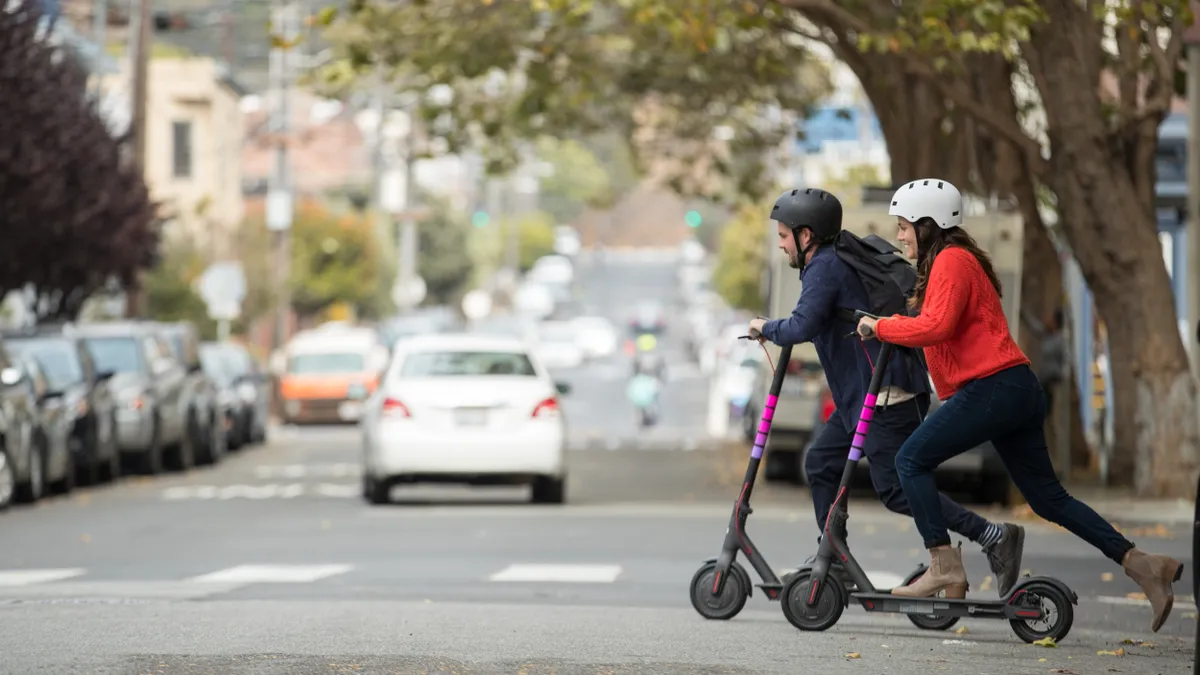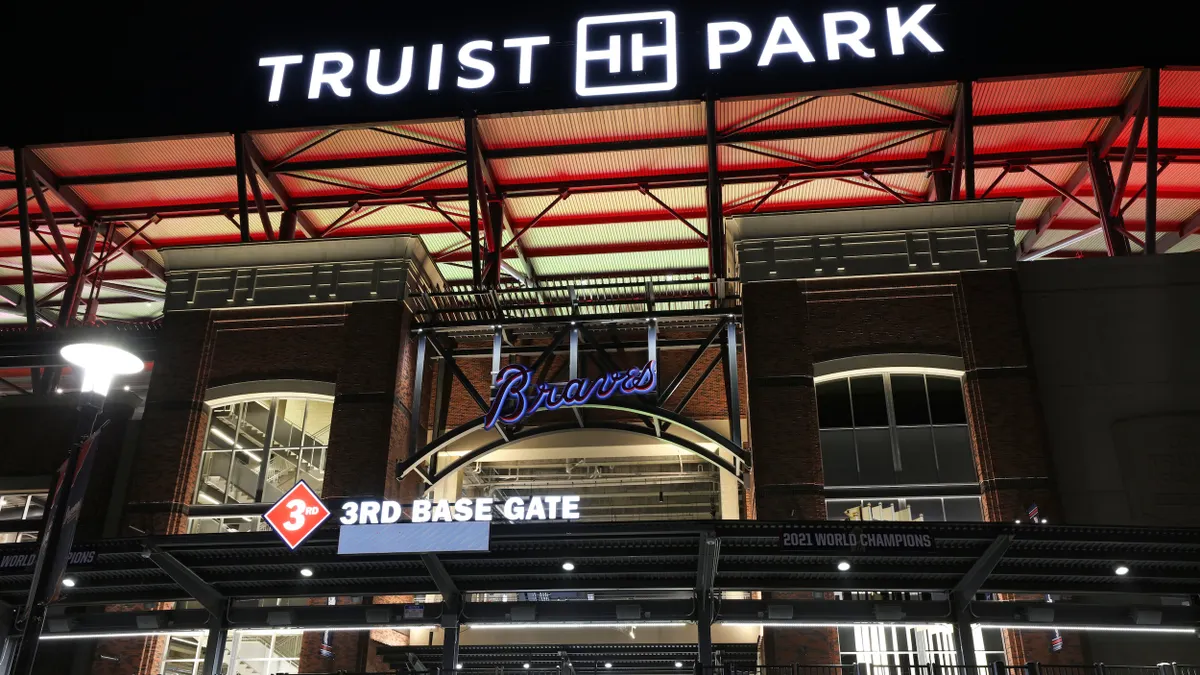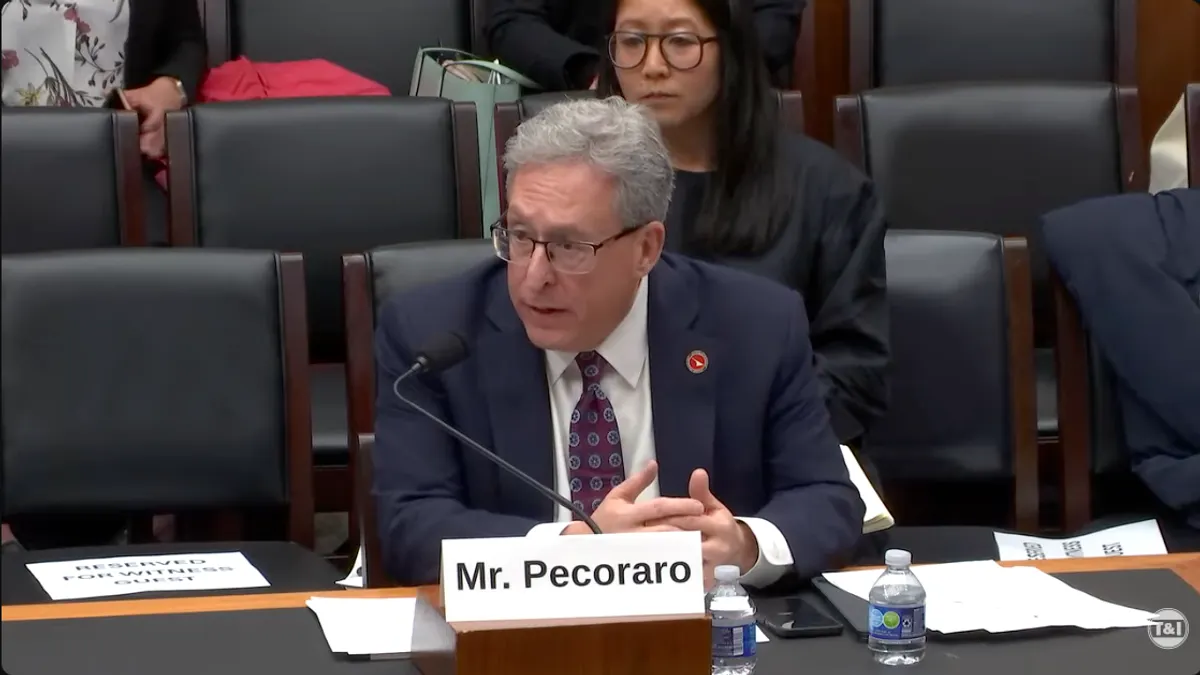One San Diego-based company is combating what it describes as the "infestation" of dockless bikes and scooters — and claims it's attracting potential copycats in other U.S. cities.
ScootScoop, founded by Dan Borelli and John Heinkel, received its first authorization agreement to remove unwanted scooters from a private property in July 2018. The company now serves around 70 properties in the city, removing improperly placed dockless devices and storing them in a shipping container, then notifying the respective operators to pick them up.
Heinkel said the company came about as a result of the influx of dockless scooters into the city and their impact on residents. An analysis by Smart Cities Dive found six companies — Bird, Lime, Spin, Razor, Jump and Lyft — have dockless vehicles in San Diego.
“What is happening is we have a massive electronic infestation that is uncontrolled, unregulated and so now you can't even walk in downtown San Diego or the tourist zones or Pacific Beach without fear of getting hit by a scooter,” Heinkel told Smart Cities Dive. “Or if you go to our downtown area now or you go to Pacific Beach, they are literally everywhere. They're like litter.”
When a property owner contacts ScootScoop wanting scooters removed, the company dispatches representatives, who photograph the scooter in its location and the respective QR code used to unlock the device. Scoot Scoop software then automatically dispatches a form to the dockless company with information on the vehicle that has been collected, where it has been taken, and how much it will cost to get it back. Heinkel said such a fee is “nominal.”
“People think it's just a couple of guys going around picking up scooters, and it's not the case,” he said. On a slow day, Heinkel estimated the company receives up to 20 such calls, while on a busy day it can be around 60.
The company also works to move scooters out the public right-of-way without removing them, Heinkel said. That initiative, which he called ScootScoop’s "Community Program," asks representatives to move them away from parking spaces, disabled ramps and other public access points to a better place. Heinkel said ScootScoop will first notify the operator of a scooter blocking public access, and while he said they often will come move it themselves, ScootScoop will intervene if they do not.
ScootScoop’s business comes on the heels of a major growth in the dockless industry, which has disrupted transportation in cities across the world, especially in the United States. But with that growth, cities have struggled to find places for the bikes and scooters to sit while they are not in use. Many have introduced rules banning them from being parked in the public right-of-way or in front of areas like ramps for the disabled.
And while many cities — and state legislatures — have already wrestled with and passed new regulations, San Diego appears to have been a little slower on the uptake. With no rules in place, Heinkel said companies have been able to take advantage and have caused what he described as an “infestation” of scooters. There has also been a lawsuit filed against three companies for allegedly violating the Americans with Disabilities Act, as well as by people who say they were injured by reckless riders.
Mayor Kevin Faulconer proposed a series of new regulations last month that would limit speeds in certain areas, prohibits parking in some parts of the city and will also encourage residents to report abandoned vehicles through its “Get it Done” app.
In a statement, Faulconer said the proposed rules are “a common-sense approach that will allow this emerging market to grow in a responsible way.” The San Diego City Council’s Active Transportation and Infrastructure Committee unanimously advanced the plan late last month ahead of a vote in the full city council.
ScootScoop’s tactics have left companies scrambling, with several saying they are reviewing their options in light of their vehicles being impounded. Only Lime responded directly to Smart Cities Dive’s requests for comment; a spokeswoman said in an email that the "safest and most efficient option" to get help with one of the company’s bikes or scooters is through direct contact with Lime.
"The community should be careful when engaging with pop-up companies claiming to provide city services like impounding or towing," the spokeswoman said. "Impounding bikes or scooters requires compliance with the law, and Lime is in the process of reviewing whether these pop-ups are committing violations which may subject them to liability. Interfering with consumer access to transportation services or disrupting a ride in progress impacts all San Diegans."
A spokesman for another dockless provider that operates in the city, which declined to be identified, said it will pay impound fees for scooters that have been towed legally, and has collaborated with every company in the city that provides impounding services.
But, the spokesman said, the company will now “require detailed documentation before paying the fee and will consider legal action against any company that illegally impounds our scooters.”
Heinkel said that despite the company’s mission to remove scooters from places where they cause inconvenience, ScootScoop is still broadly supportive of them and the companies that make them, so long as they are used correctly.
“The concept of the scooter is a great idea in the sense of helping people get from point A to point B a little farther, a little faster on electric scooters,” Heinkel said.





















